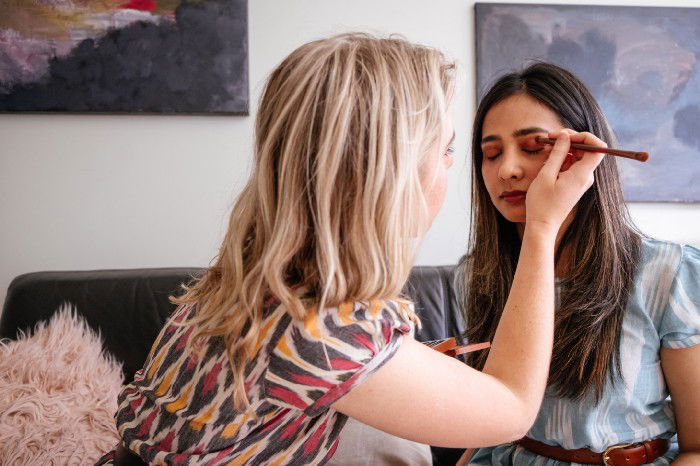Can White People Ever Really Know What Is Best For Black People?They think they can but they can’t. Reprint

The Author Rebecca Stevens A. is a very talented writer who writes about racism. Very left leaning but makes some really good points. I've read many of her articles. This one sticks out cause it reminded me of my one lurker loon who's a white progressive and in the past has claimed to be the savior of blacks cause of supposed marriage to a black person.
Article was first written here.
Written by Rebecca Stevens A.
The year was 1987, I was 16, and my white friend was getting her makeup done by a professional beautician for prom. I looked at the beautiful shades of eyeshadow, the deep black khôl eye pencils, rosy blushes, shiny lipsticks, and classy powder compact cases. I dreamt of being in her place — getting a full makeover and looking like a celebrity right after.
Like many teenage girls at the time, that was my dream. I sat there, watching them, studying every move of the expert beautician’s hand. Every once in a while, I’d open up one of the tubes of lipstick and study the shade closely. There were nude and light pink shades for white women, nothing that would suit a young Black girl like me. I sighed, trying to hide my disappointment.
“I wish I could get my makeup done too,” I repeated for what must have been the third time. “But Black people don’t wear makeup”, my white friend insisted. “How many times should I tell you? You don’t need it”. “But shouldn’t I be the one to decide I don’t need it?” I responded.“Well, the makeup industry doesn’t make makeup for Black people so I guess they don’t think you need it either”, she snarked. The white beautician nodded and both of them laughed.
I sat there feeling humiliated and neglected. Was I such a nobody that even the beauty industry didn’t even make products for me?
Fast forward a few years later, I was at university in Toronto, Canada. One Thanksgiving, a roommate in my residence invited me to spend time with her family. We went shopping and came across a big makeup sale. I was 20 at the time, and I so desperately wanted to buy myself some lipstick. I was tired of wearing gloss, I wanted some color.
The white lady at the counter advised me on a few shades. I was elated. That evening, when I cracked open the packages, none of the colors suit me. They were pale pinks — lipstick that would look good on a white woman’s lips, not on my two-toned Black lips. I felt frustrated. My roommate saw that I was upset and asked what was wrong.
I explained that none of the lipsticks matched my hue. “But you don’t need make-up, Rebecca, Black people don’t need makeup. I don’t even understand why you wasted your money”. “But Carol, aren’t I the one supposed to decide I don’t want to wear makeup? What about you, would you like it if someone told you you couldn’t wear makeup.”
“But it’s different, I need make-up to enhance my eyes, make my lips plumper, smooth my skin. You don’t need it because you already naturally have all those things”. “I see what you are trying to say, but I really think that I should decide if I want to wear it or not. It shouldn’t be you or the industry telling me I don’t need it”. Carol seemed a little taken aback. She never re-invited me. I guess I offended her.
The fact is, white folks have dictated what they think is good for Black and brown people for centuries. In the beauty and fashion industries, this has meant upholding a white, Eurocentric standard of beauty. As demographic shifts occur, that dominant standard of beauty is changing with it, but for the longest time, Black and brown women were invisible to the makeup industry. They simply didn’t cater to our needs. For them, we did not matter, we did not exist.
Today, make-up brands realize that there is a huge market for Black and brown people. Whereas there are only 3 shades of Caucasian skin, there are 16 different shades for Black and brown people. This represents a huge opportunity for the cosmetics industry. But personally, I still hold a grudge against those old French cosmetics brands that made me feel invisible at a time in my life when I was building my identity as a Black woman.